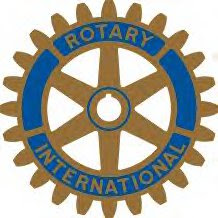20090125
Rotary's Man at the United Nations: Sylvan Barnet
"Sylvan Barnet: Rotary's Man at the UN" from the July 2009 Rotarian Magazine.
For more than 20 years, Sylvan M. Barnet Jr. has been one of RI's representatives to the United Nations. After serving in the U.S. Navy during World War II, he worked in Paris at the International Herald Tribune, becoming its publisher in 1954. In 1959, he cofounded Barnet & Reef Associates, a pioneer in international public relations, and he later worked for the U.S. Department of Commerce. Barnet, known to his friends as "Barney," is a member of the Rotary Club of New York.
The Rotarian: Rotary was one of the nongovernmental organizations (NGOs) that contributed to the UN charter in 1945. What's Rotary's role at the UN today?
Sylvan Barnet: We're a consultative NGO, so we've got a lot more clout than the information-only NGOs. There are some 3,000 NGOs at the UN, but only about 150 of us in the UN's General category -- for that, you have to be worldwide and work on a number of issues, not just one.
TR: How important is Rotary's role?
Barnet: Think of Rotary as being representative of 1.7 million people, if you include Rotaractors and Interactors. The rep from Grenada, he represents 90,000 people. So why shouldn't they listen to us? Take polio eradication. Rotary's real legacy there is social mobilization. That takes planning, manpower, networking, monitoring, and surveillance. That's experience we've had at the global level, in 121 countries where we've eradicated polio. Governments don't have that kind of manpower.
TR: What changes have you seen in your years at the UN?
Barnet: For starters, there are 89 new democracies in the world and not as many mad dictators. In that sense, the world has gotten better.
TR: Is there a sense in which it's not better?
Barnet: They all have one vote. Tiny countries have the same vote as big ones. So you've got a nondemocratic Security Council and a much-too-democratic General Assembly. But there are also new parts to the UN system, like the office for the least developed countries and small island developing states, which helps them greatly.
TR: How has financing for development evolved?
Barnet: The private sector is now welcome, with foreign direct investment. There's an old saying, goes back to the Depression years, that you can't do business in a poor house. Private investment and capital flows are now much bigger than government flows of aid.
TR: Why do we need the UN?
Barnet: With all its faults, the UN is the only place in the world where it all comes together. Newspapers mainly report on the Security Council, so people don't realize that 80 percent of the UN's work is humanitarian. No other place has [so much] information and resources, and all these people coming together, including civil society (NGOs). That's got to be worth something.
For more than 20 years, Sylvan M. Barnet Jr. has been one of RI's representatives to the United Nations. After serving in the U.S. Navy during World War II, he worked in Paris at the International Herald Tribune, becoming its publisher in 1954. In 1959, he cofounded Barnet & Reef Associates, a pioneer in international public relations, and he later worked for the U.S. Department of Commerce. Barnet, known to his friends as "Barney," is a member of the Rotary Club of New York.
The Rotarian: Rotary was one of the nongovernmental organizations (NGOs) that contributed to the UN charter in 1945. What's Rotary's role at the UN today?
Sylvan Barnet: We're a consultative NGO, so we've got a lot more clout than the information-only NGOs. There are some 3,000 NGOs at the UN, but only about 150 of us in the UN's General category -- for that, you have to be worldwide and work on a number of issues, not just one.
TR: How important is Rotary's role?
Barnet: Think of Rotary as being representative of 1.7 million people, if you include Rotaractors and Interactors. The rep from Grenada, he represents 90,000 people. So why shouldn't they listen to us? Take polio eradication. Rotary's real legacy there is social mobilization. That takes planning, manpower, networking, monitoring, and surveillance. That's experience we've had at the global level, in 121 countries where we've eradicated polio. Governments don't have that kind of manpower.
TR: What changes have you seen in your years at the UN?
Barnet: For starters, there are 89 new democracies in the world and not as many mad dictators. In that sense, the world has gotten better.
TR: Is there a sense in which it's not better?
Barnet: They all have one vote. Tiny countries have the same vote as big ones. So you've got a nondemocratic Security Council and a much-too-democratic General Assembly. But there are also new parts to the UN system, like the office for the least developed countries and small island developing states, which helps them greatly.
TR: How has financing for development evolved?
Barnet: The private sector is now welcome, with foreign direct investment. There's an old saying, goes back to the Depression years, that you can't do business in a poor house. Private investment and capital flows are now much bigger than government flows of aid.
TR: Why do we need the UN?
Barnet: With all its faults, the UN is the only place in the world where it all comes together. Newspapers mainly report on the Security Council, so people don't realize that 80 percent of the UN's work is humanitarian. No other place has [so much] information and resources, and all these people coming together, including civil society (NGOs). That's got to be worth something.









